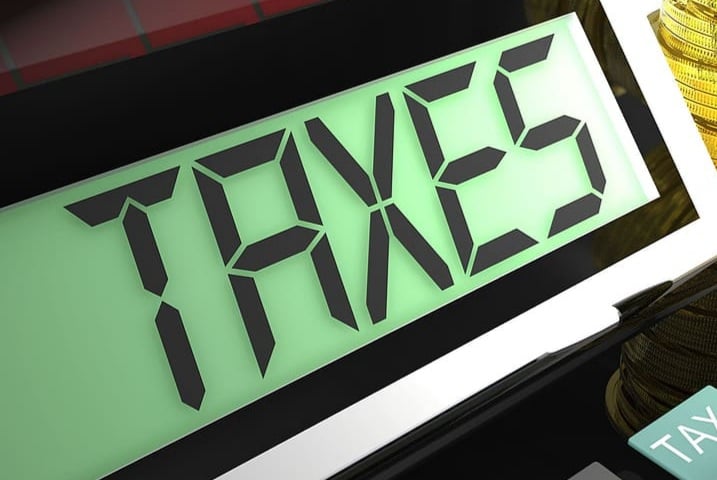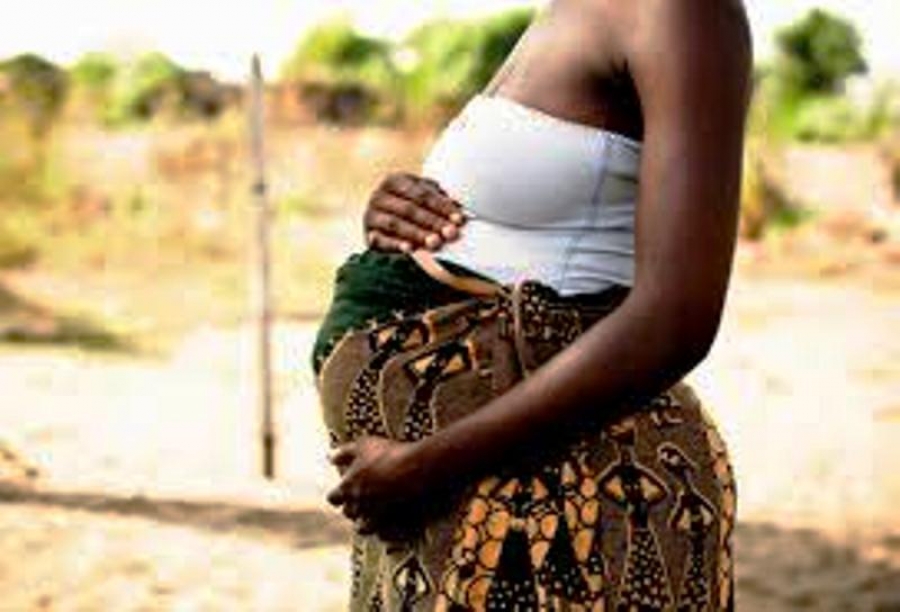BY FOLORUNSO OLUSEYI
The immortal relevance of Benjamin Franklin words in his 1789 letter to Jean-Baptiste Le Roy, where he wittingly stated “…in this world nothing can be said to be certain, except death and taxes” took on a graver meaning for Nigerians when the Nigerian Tax Act, as well as its related acts, were signed into law on the 26th of June 2025, with January 1st 2026, slated as the ultimate date for its enforcement. Franklin’s words can be said to be apt as they apply to the Nigerian tax issue, but what perhaps is more witty is the parallels between the origin of his remarks and with Nigerian reaction to the new tax bills.
Though the United States statesman is esteemed as the most popular progenitor of those witty words, earlier version can be traced to the controversial 1726 book, The Political History of the Devil, where Daniel Defoe contend that the Devil was actively involved in the world shaping events of that era, much to the dismay of the Catholic Church, who slapped an heretic interdict on the literary piece, as well as Christopher Bullock 1716 comedy drama, The Cobbler of Preston. Just as the origins of the above quote oscillate from the extremities of radical religious fanaticism to jocose interpretation of Caesar demanding his due, Nigerians’ reactions to the tax bill have mainly been on the same bandwidth. But amidst the smorgasbord of reaction to the tax bill, there has been a panoply of misinformation, often embellishing the truth about what the tax bill constitutes. This thus forms the thrust of this treatise as I dissect multiple controversial views, and isolate the nitty truth in the Nigerian Tax Laws.
The Nigerian Tax Reform Bill, which was signed into law on June 26, 2025, comprises four Acts, namely: The Nigerian Tax Act, the Nigerian Tax Administration Act, the Nigerian Revenue Service Act, and the Joint Revenue Board Act. These Acts all together form the basis of the proposed Nigerian new tax system, which overhauls the current tax system, widens the tax bracket, increases tax revenue, and more importantly, drives the improved economic growth of the country by pushing for a favourable business environment with proper tax administration that aligns with global standards. But how so? Well, we review certain aspects of the tax acts that have been the basis of certain misinformation.
Advertisement
Among the several aspects of the Tax Acts which have been fiercely debated, the Personal Income Tax (PIT) takes centre stage. This is owing to the fact that the new tax system now brings a cross-section of Nigerians, especially in her informal sector, under the watchful eyes of the Nigerian tax watchdog. This truth takes on a new and profound meaning when you consider that the Nigerian informal sector accounts for 92.3% of the Nigerian labour force, according to the 2nd Quarter 2023 report of the Nigerian Bureau of Statistics.
With the growing economic pressure in the country, that figure most likely has risen. In the current tax system of the country, no effective system exists to identify, assess, or enforce tax obligations on this crucial sector in the Nigerian labour force. But the new tax system serves to correct this blight through the linkage of financial identifiers, namely the NIN, BVN, with relevant tax IDs. As such, this sector is about to go from little to no federal tax payment to well-enforced comprehensive tax payment in a matter of days.
For many in this sector, this is a hard pill to swallow, and the humorous words of Mark Twain, who stated that the difference between the taxidermist and the tax collector lies in the former preserving your skin, is an apt reflection of what such ones in these economic strata believe the tax bill serves to do. But this is far from the truth. The fact that the sector has long been overlooked by federal tax authorities is a blight which would have been corrected sooner or later. But the new tax bill, as it applies to PIT, which will heavily impact the informal sector, provides the easiest means of correcting this blight. But many still fall short of understanding this. This is not surprising. Even the smartest minds have fallen short of this. Renowned physicist Albert Einstein exclaimed that the Personal Income tax is the hardest thing to understand. But here is a comprehensive explanation of the PIT.
Advertisement
In the current system of PIT deduction set to be phased out on December 31st, 2025, the first N300,000 is taxed at 7%, the next N300,000, taxed at 11%, the next N500,000, taxed at 15%, the following N500,000, taxed at 19%, the next N1,600,000 taxed at 21%, while the next N3,200,000 is taxed at a rate of 24%. Further aspects of PIT deduction include a consolidated relief allowance of 20% of personal income plus N200,000, as well as a deduction for pension fund and related expenses prior to PIT deduction. Tax deductions are exempted for individuals who earn below or exactly the minimum wage.
However, the new tax system for PIT makes allowance for the first N800,000 income to be taxed at 0%, the next N2,200,000 taxed at 15%, the next N9,000,000 taxed at 18%, the next N13,000,000 taxed at 21%, and the next N25,000,000 taxed at 23%. Other amounts above N50,000,000 attract a tax of 25%. Rent relief of 20% annual rent, capped at N500,000, replaces the consolidated relief allowance, while pension funds, payment to the National Housing Fund, National Health Insurance schemes, life insurance or annuity premiums, as well as gifts, are exempted from PIT deductions. The new tax bill further stipulates that with the use of BVN (Bank Verification Number) and National Identification Number (NIN) as tax identifiers, PIT deduction would be made based on the total amount deposited in a taxable individual bank account in a year.
But what do these features translate into in figures? For practical purposes, say a Nigerian earns a monthly salary of N77,000, with 8% of his earnings deducted each month as part of his pension contribution, while paying an annual rent of N200,000. This translates to a yearly salary of N924,000, with a yearly pension deduction of N73,920. For simplicity, we assume no other deductions for the National Housing Fund or insurance premiums are made.
Under the current tax system, such a person’s taxable income would thus be calculated as;
Advertisement
Taxable Income (under current tax system) = N924,000 – (20% of N924,000 + N200,000 + N73,920) = N465,280
For the first N300,000, taxed at 7%, he pays a tax of N21,000.
For the next N300,000 (now N465,280 – N300,000 = N165,280, taxed at 11%, he pays a tax of N18,181).
So in a year, he pays a tax of N21,000 + N18,181 = N39,181, which translates to N3,265.08K monthly.
Advertisement
However, in the new tax system set to take effect from January 1st, 2026, such an individual’s taxable income would be calculated as indicated below.
Taxable Income(under the new tax system) = N924,000 – (20% of N200,000 annual rent + N73,920) = N810,080.
Advertisement
For the first N800,000, he pays a tax of 0% = N0
The next band of income between N800,000 – N2,200,000 (in this instance N810,080 – N800,000 = N10,080) is taxed at 15% = N1512.
Advertisement
As such, his yearly tax amounts to N1512, and N126 monthly.
The huge discrepancy in tax payments between the old and new tax systems is indicative of the fact that the tax burden of such an individual is hugely relieved. And this is the case for most strata of income earners in the lower to middle class income range. However, especially in the informal sector, tax payment as outlined by the new tax bills is a novelty and will take a while to adjust to.
Advertisement
Aside from the Personal Income Tax, other aspects of the tax bills that serve to be lauded include the increase in the exemption threshold of company income tax for small companies, which are now defined as companies with annual gross turnovers of N100 million as opposed to the previous amount of N25 million, with fixed assets not more than N250 million. Elements of the tax bill, such as an increase in capital gains tax for companies and for individuals taxed according to their income band in PIT rates, reinforce the argument that the tax bill is geared at taking more from top earners than from lower-income and middle-class earners.
The VAT component of the tax bill further provides another interesting outlook on the new tax bill. The Tax Acts exempts VAT from essential goods and services, which include medical and pharmaceutical items, food, electricity generation, tuition, as well as non-oil and gas exports is further proof that the tax acts aim to lessen the burden on Nigerians. The update to the VAT sharing formula is now set at 10% to the Federal Government, 55% to the state governments, and 35% to local governments. The mode of sharing of VAT among states and local governments was further set at 50% to be shared equally, 30% based on place of consumption, and 20% based on population. This sharing formula thus ensures equity among states, while balancing the necessary preferences for increased sharing for locations where goods are primarily consumed, and locations with increased populations. The VAT sharing formula further impresses the fact that local governments and state governments now have to be held accountable by their citizens for necessary matters of development in communities, as they are now equipped with the necessary resources to drive positive developments.
While the Nigerian Tax bill holds much promise for the Nigerian economy, and limits the extent of burden on its most humble citizenry, certain aspects of the tax bill are not without falter. The new tax bill serves to bring the Nigerian informal sector under the watchful eyes of the tax authorities, ensuring they pay their share; however, the issue of double taxation is a subject that these economic strata may be susceptible to. While the informal sector does not exactly pay taxes to the tax authorities, such as the FIRS, or state IRS, they do pay levies and dues to local government authorities, many for different purposes.
The new tax bill provides no provision to ensure that PIT deductions take into account such taxes made to local and state authorities. Public transport workers, the Danfo drivers, Keke Napep riders, and Okada riders, daily pay levies in the form of daily tickets, levies, to transport unions and local government authorities, which could range from as little as N500 to N2000 per day depending on location, the PIT deduction would be made without taking into account such levies and payments leading to double taxation. The tailor, pepper merchant, and food vendor all pay levies to their respective unions, shop permits, sanitation permits, as well as local government development levies, yet the PIT tax deduction does not account for this, which ultimately gives rise to double taxation. The same argument applies to the local artisans, as well as farmers and traders.
Proponents of the tax bill, however, argue that many in the informal sector can avoid the issue of double taxation by registering their businesses, which would invariably qualify them for the 0% tax on small businesses and micro enterprises. This would encourage small business registration and their inclusion into the tax net with no financial repercussions. This is true, but the practicality of it puts a strain on its effectiveness. The average worker in the Nigerian informal sector runs a business based on trust, kinship, and informal delegation, and this is the basis of the misalignment with the new tax bill requirements. The impracticality of this approach stems from the fact that registration of the small enterprises of the average informal worker is hindered by digital illiteracy, grapples with registration costs, and persistent local levies.
Further, most informal workers themselves do not possess bank accounts but conduct financial activities through the bank accounts of children or relatives. This truth brings to the fore the fundamental flaw of misidentification of income sources and taxation of the wrong persons owing to the new BVN-linked tax framework. The new tax bill thus has to be structured to reflect the lived reality of the informal sector it serves to bring under the tax net through approaches such as simplified market-based registration, effective transaction tagging, and visible taxation benefits. Anything short of this risks entrenching the increased distrust between the government and the informal sector.
As the days to the implementation and enforcement of the Nigerian Tax Bill slowly count down, a proper understanding of aspects of the tax law as it applies to individuals should be prioritised by every Nigerian. That is a civic responsibility to ensure appropriate compliance with the new tax laws, which include hefty penalties for non-compliance. It should also be noted, as established in this piece, that the tax law is not one geared at pushing a hefty tax burden on the citizenry, but rather ensuring that a long-overlooked cross-section of the public lives up to their civic responsibility of tax payment. The new tax provision further lessens the burden of that responsibility.
But as many in these new economic strata would be paying PIT for the very first time come 2026, it may be a new bitter pill to swallow, albeit a fair, moderately sized pill. The bill, however, does not make room for the double taxation of these economic strata, which may bear negative implications for the economy. Further, critics of the bill argue that the tax bill mandates tax payment from citizens, but leaders set a terrible example in effective utilization of state resources. This is, in fact, true; leaders of the country have a reputation for mismanaging the people’s wealth.
But with the government now stiffly implementing tax responsibility, I hope it spurs the public to live up to their innate responsibilities of holding money-grubbing leaders accountable. Some have also taken their frustration over the tax reforms through disparaging remarks at the leaders of the Presidential Fiscal Policy and Tax Reforms committee. This is unsurprising and expected. History finds a way of repeating itself, and in this instance, the committee joins the long list of tax officials to inspire the ire of the people. From the biblical figures who battered integrity for silver, the royal tax agents of King John of medieval England whose excesses inspired the Magna Carter, the founding basis of democracy, to the Aba Women riot, where colonial tax greed was met with public fury, the enduring hatred for tax officials have been less about the individuals themselves, but essentially about the ideals such taxes represents; distrust, inequality, and greed.
Thus, the Presidential Fiscal Policy and Tax Reforms committee members join the age-long list of despised tax officials, owing to the people’s wariness of the exploitation by a government that demands more from them but brazenly spends resources. Still history has further cemented the goodwill of the people in espousing the virtue of tax payment, when the merits and evidence of its public good are well advertised and justified, as such the Presidential Tax Reform Committee should continue in its mandate of espousing the truth that the Nigerian tax reforms is dissimilar from history instances of the people bearing the crushing weight of excessive taxation.
Post-war Britain tax system based off social welfare and equity, the Scandinavian tax models, though one of the highest in the world, yet records one of the least cases of tax evasion and high level of public trust in government, all are indicative of the one indubitable fact that citizens are happy to pay their fair share of Cesar’s due when the merits are justified. In all, so long as public trust in efficient utilisation of state resources is sustained, when taxes are instruments of societal progress and less about the avarice of a select few, the people, Nigerians, would take heed to the insightful words offered by the wisest man to have walked the earth, “Give to Cesar, what belongs to Cesar”.
Folorunso Oluseyi can be contacted via [email protected]
Views expressed by contributors are strictly personal and not of TheCable.








